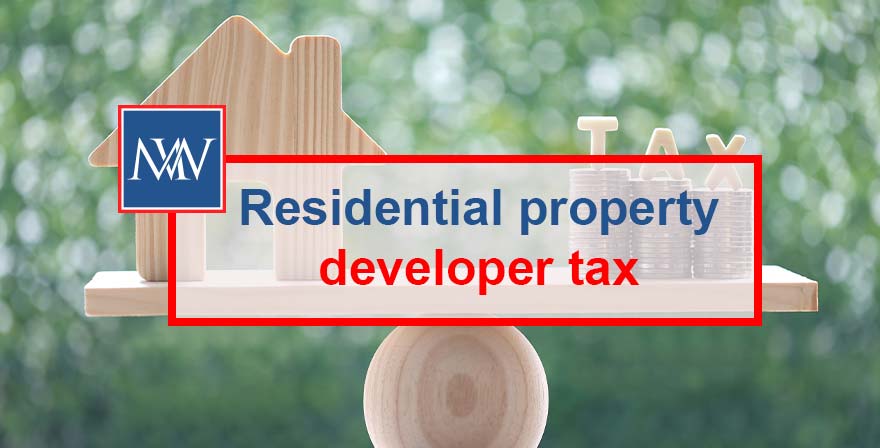
Residential Property Developer Tax
Legislation has been published in draft which will bring a new tax – the Residential Property Developer Tax (RPDT) onto the statute book. The publication of the draft legislation, on which comments were sought, follows a consultation earlier in the year on the design on the tax.
The tax is being introduced as part of the Government’s Building Safety Package announced in February in the wake of the Grenfell tower cladding scandal. It aims to raise revenue to help fund vital remediation works. The Government’s expectation is that building owners and developers should meet the costs of remedial to ensure all cladding is safe without passing on to the leaseholder. However, where they have not met the cost, or the builder or developer no longer exists, the Government will provide support in meeting the costs.
The RPDT is one of two revenue-raising measures contained in the package; the other being a new Gateway 2 levy which will be applied when developers seek permission to develop certain high-rise buildings in England.
Nature of the new tax
The RPDT is a time-limited tax that will apply to the largest residential property developers in respect of money that they raise from UK residential development. The tax will be introduced in 2022. The stated aim is to raise £2 billion over the next 10 years.
Scope
The tax will apply to companies within the charge to corporation tax that undertake residential property development activities. Residential property development activities are activities that are carried out by a residential property developer on, or in connection with, land in the UK in which the residential property developer has an interest and which are for the purposes of the development of residential property. This may include:
- dealing in residential property;
- designing residential property;
- seeking planning permission in relation to it;
- constructing or adapting it;
- marketing it;
- managing it; and
- any activities which are ancillary to those listed above.
Certain properties fall outside the definition of ‘residential property’, including residential homes for children, residential care homes, student accommodation, residential accommodation for the armed forces, members of the emergency services and those working in a hospital.
Tax-free allowance
The tax will apply to the developer’s residential property profits (as calculated in accordance with the formula set out in the draft legislation), to the extent that they exceed its allowance for the accounting period.
The allowance limits the scope of the tax only to large residential property developers.
As announced in the Autumn Budget on 27 October 2021, the tax will apply on profits in excess of £25 million and will be charged at the rate of 4%.
For more information, Book a Free Consultation
Need Accountancy Support?
For information on bespoke training, or if you have any other questions for Makesworth Accountant, please fill in your details below




















 150
150